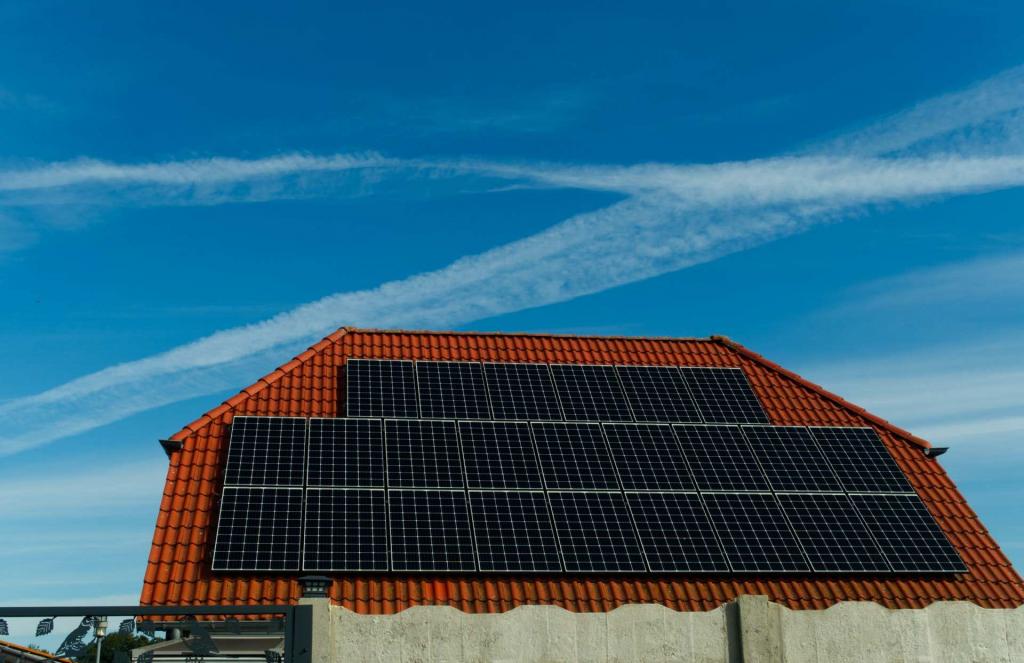Thessaloniki gets ready for its metro launch in November
The underground rapid transit lines have been under construction for almost two decades due to various project delays
 TheMayor.EU logo
TheMayor.EU logo 
Photovoltaic systems on a home's roof can reduce energy costs, because people are producing and using their own electricity
Aimed at low-income households, it should help them with home energy efficiency improvements and the installation of photovoltaic systems
Yesterday, authorities in Luxembourg presented the country’s ‘Klimabonus’ scheme, which should help individual households by funding sustainable renovation projects. This includes insulation, retrofitting heating systems and replacing old boilers.
The aid scheme is particularly aimed at lower income households and should help them to increase the energy efficiency of their homes. Furthermore, it also wants to support households that want to take part in the shift towards renewables and convince more Luxembourgers to move away from damaging consumption practices.
Many EU countries are trying to speed up the transition towards renewable energy by mandating landowners and developers to construct buildings with photovoltaic systems from the get-go. Another strategy that many cities have used is to mandate solar panels every time a building needs to go roof repairs, using the opportunity to push more and more residential areas into saving on CO2.
While this approach could prove to be effective at bringing carbon emissions down in the long run, it leaves much to be desired in terms of what many have dubbed a ‘just transition’. This is because, despite solar panels’ recent plummet in costs and the potential to generate your own energy, many homeowners struggle with the rising cost of living. Inevitably, there will be people who put off redeveloping a leaking roof just because they cannot afford the added cost of a PV installation.
This is where Luxembourg’s approach differs, as the Klimabonus programme is voluntary and people can get the financial assistance they need, without being forced into implementing bank-breaking renovations. Coupled with the fact that insulation and heat pumps (both supported by the programme) can bring the energy costs of a household down by quite a bit, Klimabonus specifically aims at targeting energy poverty.
The bonus scheme is divided into five categories, each with its own criteria. According to a statement by the government, the bonus system will apply to renovation projects until 2025. Here are the categories:
Minister for the Environment, Climate and Sustainable Development, Joëlle Welfring, was quoted in a press release, saying: "Klimabonus is an outstretched hand available to everyone. Citizen aid is an element of our strategy to face the climate crisis, but not the only one. The State, the municipalities and the private economy will play their part by laying down a framework facilitating the adoption of good habits. It is by acting together that we will emerge from the crisis."

The underground rapid transit lines have been under construction for almost two decades due to various project delays

Now you can get your wine in Talence by paying directly in Bitcoin

That’s because the state has to spend money on updating the railway infrastructure rather than subsidizing the cost of the popular pass

Rethinking renewable energy sources for the urban landscape

The examples, compiled by Beyond Fossil Fuels, can inform and inspire communities and entrepreneurs that still feel trepidation at the prospect of energy transition

Now you can get your wine in Talence by paying directly in Bitcoin

The 10th European Conference on Sustainable Cities and Towns (ESCT) sets the stage for stronger cooperation between the EU, national and local level to fast track Europe's transition to climate neutrality.

At least, that’s the promise made by the mayor of Paris, Anne Hidalgo

The underground rapid transit lines have been under construction for almost two decades due to various project delays

At least, that’s the promise made by the mayor of Paris, Anne Hidalgo

Hostal de Pinós is located in the geographical centre of the autonomous region

Despite its church-y name, the district has long been known as the hangout spot for the artsy crowds

Urban dwellers across the EU are having a say in making their surroundings friendlier to people and the environment.

Forests in the EU can help green the European construction industry and bolster a continent-wide push for architectural improvements.

Apply by 10 November and do your part for the transformation of European public spaces

An interview with the Mayor of a Polish city that seeks to reinvent itself

An interview with the newly elected ICLEI President and Mayor of Malmö

A conversation with the Mayor of Lisbon about the spirit and dimensions of innovation present in the Portuguese capital














